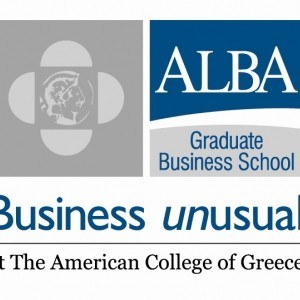Pursue a career dealing with some of the hottest challenges in business today:
- Measure and manage risks related to trade receivables, borrowing, and production and supply costs.
- Identify operational risks in all areas of business.
- In pursuit of higher returns, reign in on growing market volatilities.
- Control the credit, capital and other financial risks inherent in banking and insurance institutions.
Join the ranks of the globally growing profession of risk management and help organizations in all industries become more resilient amidst unprecedented uncertainty.
Risk management is recognized as an essential business function for protecting the long term interests of creditors, shareholders, customers and society at large.
A specialist academic qualification in financial and operational risk management is now sought after by employers the world over.
In a world dominated by uncertainty, prudent managers must calculate the relevant risks before taking any decision. The MSc in Risk Management is designed to develop professionals equipped with the knowledge and the analytical skills that will enable them to identify, measure and manage the financial and operational risks latent in every investment, business decision or transaction.
The significant social costs paid by many societies due to the recent financial crisis, highlight the importance of effective risk management. Three pillars are currently recognized as essential for managing risk effectively: policies, methodologies and infrastructure. A common denominator of all three pillars is the need for risk-informed human resources.
Policies are designed, applied and monitored by managers who understand the dynamics and implications of tail risks. Rigorous methodologies are developed and validated by risk officers with the appropriate quantitative skills. Technology assists risk-educated managers to measure the risk of an asset or an asset portfolio, while financial innovation provides the tools for effective risk mitigation.
A state-of-the-art program designed for
- Graduates with a quantitative background in pursuit of a career in risk divisions of financial institutions, large corporations or investment companies.
- Managers who engage in risk taking activities
- Professionals responsible for monitoring risk and reporting to senior management.
- Management consultants specialized in risk solutions
- Regulation/compliance officers responsible for supervising business units, enterprises or financial system participants.
Full Time and Part Time mode: The program commences every September and is offered on a full-time (12 months) and part-time (24months) basis. All courses -for the full-time and the part-time participants- are held in the evening.
Contributing to the development of a risk aware business community
Hands-on: specialization courses are tailored to address pragmatic challenges faced by risk management practitioners.
Integrated: The modular structure of the curriculum ensures that the program is well balanced around four themes: competency in quantitative skills, knowledge of financial theory, advanced analytics, and ability to measure and mitigate risk.
Aware: Studying risk dynamics allows for a deeper understanding of the contagion mechanisms that created global financial crisis with significant impact on societies.
Innovative: the program offers the opportunity to study issues that differentiate from standard finance curricula such as the challenges faced by financial institutions, the role of regulation in promoting financial stability and the application of quantitative processes that focus on tail risks.
Through the MSc in Risk Management Program, you will:
- Develop an appreciation of financial & operational risks faced by financial institutions, corporations and market investors.
- Strengthen quantitative skills required for measuring the impact of extreme events.
- Learn to utilize the tools, methods and processes for managing risks.
- Understand financial theory and market dynamics.
- Become up to date with the latest trends and practices in risk regulation.
- Embrace values for sustainable and socially responsible decision making.
Period 1 (September October)
Core Courses
- Financial Markets (14 contact hours, 3 ECTS)
- Financial Institutions (14 contact hours, 3 ECTS)
- Principles of Risk Theory (14 contact hours, 3 ECTS)
- Quantitative Tools in Finance (28 contact hours, 6 ECTS)
- Business and Financial Ethics & Social Responsibility (14 contact hours, 3 ECTS)
Period 2 (November December)
Core Courses
- Financial Risk Management (28 contact hours, 6 ECTS)
- Corporate Finance & Valuation (28 contact hours, 6 ECTS)
- Empirical Methods in Finance (28 contact hours, 6 ECTS)
Period 3 (January February)
Core Courses
- Portfolio Management & Investments (28 contact hours, 6 ECTS)
- Financial Modeling (28 contact hours, 6 ECTS)
- Credit Risk Modeling & Management (28 contact hours, 6 ECTS)
Period 4 (March April)
Electives Courses - Choose two elective courses OR Submit a Dissertation*
- Fixed Income Analysis & Portfolio Management (28 contact hours, 6 ECTS)
- Advanced Corporate Finance (28 contact hours, 6 ECTS)
- Corporate Risk Management (28 contact hours, 6 ECTS)
- Project Risk Management (28 contact hours, 6 ECTS)
*instead of 2 elective courses a student has the right to submit a dissertation
Period 5 (May July)
Core Course
- Financial Econometrics & Forecasting (28 contact hours, 6 ECTS)
- Financial Engineering & Risk Management (28 contact hours, 6 ECTS)
Want to improve your English level for admission?
Prepare for the program requirements with English Online by the British Council.
- ✔️ Flexible study schedule
- ✔️ Experienced teachers
- ✔️ Certificate upon completion
📘 Recommended for students with an IELTS level of 6.0 or below.










